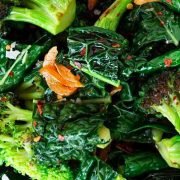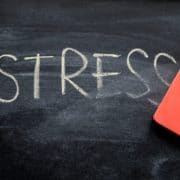That which does not kill us …
In the late 1800’s, the German philosopher Friedrich Nietzsche said
“That which does not kill us, makes us stronger.”
It is a phrase often used to explain the resilience of people who have endured hardships. It turns out that it certainly contains more than a grain of truth.
My interest in this subject arose from undergoing a course called Air 427 in 1998, whilst serving as an officer in the British Armed Forces. The course was 10 days of rigorous combat survival and resistance to interrogation training, which involved walking 100’s of km over 10 days, with very little sleep due to sleeping rough in freezing conditions, and the only food over the entire 10 days was a chicken between 4 people – and it was alive when we got it. To ramp up the pressure, the final 5 days was an ‘escape and evasion’ phase, where we were to evade a Hunter Force that was equipped with helicopters, vehicles and dog teams.
At the end of the 10 days, we underwent interrogation training, which consisted of alternating bouts of highly uncomfortable stress positions (blindfolded while exposed to very loud ‘white noise’), with interrogations of increasing intensity.
Once the course was over, the first thing that struck me was that I had a new-found appreciation for things that I took for granted – as well as the obvious such as food, shelter and warmth, there were lots of little things that I appreciated much more, such as a toothbrush, clean underwear and toilet paper!
It wasn’t until a few weeks and months later that I noticed something more long lasting – my view of what was stressful had completely changed and my resilience was greatly enhanced. I realised that this phenomenon was very well explained by knowledge from my first Master’s Degree in Sports Science – that of training adaptation. Exposing the body to training stresses, such as sprinting or lifting heavy weights, induces changes in gene expression which result in an adaptive response – and the body ultimately becoming bigger, faster, stronger.
This knowledge led to me reframing potential stress in my life as something that would make me stronger. When I left the Armed Forces and became more of an academic I looked deeper into the research in this area, and that is when I uncovered a topic that has real relevance to many areas of our life – that of hormesis.
Hormesis is a biological phenomenon whereby a beneficial effect results from low doses of a stressor or toxin that a higher dose is harmful or even lethal. As you will see over the next few blogs, we can harness this biological phenomenon in a systematic and deliberate way to improve many aspects of our health and move us beyond resilience to being what I call ‘stress adapted’.
If you choose to adopt the hermetic lifestyle, you will likely be changing how you eat, what supplements you take, how you exercise and your view of stress to enhance production of protective genes and enzymes that will protect you against disease and increase your lifespan.
I’ll explore how anti-oxidant supplements can be bad for you, the truth about why vegetables are good for you, and the best type of exercise for health.
This is not the lifestyle equivalent of a fad diet, but the application of years of research into areas as adverse as gene expression, exercise adaptation, dietary polyphenols, ageing, resilience, toxicology, radiation, immunotherapy and special forces training – all under the same fascinating umbrella called hormesis.










Leave a Reply
Want to join the discussion?Feel free to contribute!